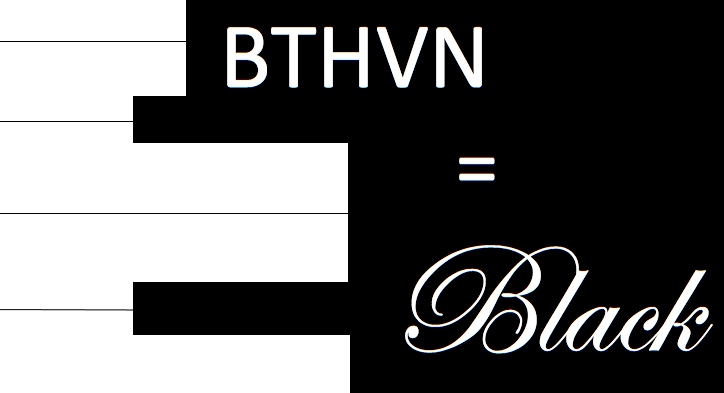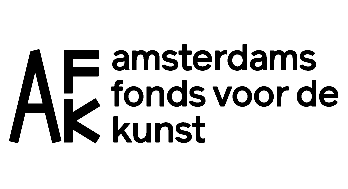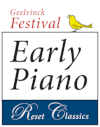
Position Paper ‘Beethoven is Black’
Classical music is a Western art music, originating from a period in which Western-Europe dominated large parts of the world. At the time, systematic public-private exploitation and migration were forced on significant parts of humankind, shaping the social geography we have to deal with today. People of colour* still undergo the burden of a global civil society rooted in this past.
However, in the late 18th and early 19th centuries, Europe itself was torn by revolutions boasting the slogan ‘liberté, égalité, fraternité’. Civil wars were waged to overturn the existing power imbalance, systematic inequality and structural exploitation. In some colonies this resulted in a – albeit often brief – period in which slavery was legally abolished. A significant part of the European intellectual elite, including many musician-composers such a Beethoven, was committed to these progressive views, risking repercussions when these were adhered to too openly. During Beethoven’s formative years, the cornerstones of civil concepts were laid, which later developed into the internationally accepted – albeit not universally applied – modern notion of Human Rights. Still today, Beethoven’s work is for many people worldwide, a symbol for social justice and democratic freedom.
With this production our museum addresses this historical context of classical music and aims to create awareness for the inherent ambiguity, with which people of colour may view classical music. Our goal is to further the discourse on this theme. We use the myth, that Beethoven was black, as a metaphor: racial appropriation of Beethoven is set against the mainstream concept that the universal appreciation of classical music is independent of its historical context.
The two issues, which the Production ‘Beethoven is Black’ aims to address, are:
1. Historically, classical music stems from an elitist Western-European civilization, which worldwide forced migration and systematic exploitation, but also fought revolutions paving the way to a more humane civil society. This ambiguity characterizes the historical context of classical music.
Should classical music be framed as ‘Western supremacy’ and therefore be cancelled, or should it be considered the clarion call for democratic freedom and social justice? Or is this matter, i.c. classical (and baroque) music in its historical context, more complex? How do musicians of colour* view this dilemma?
2. Which barriers, if any, do budding musicians of colour* encounter, when emerging as professionals in the realms of classical and early music? How can society make education of classical and early music more inviting for musicians, whose roots are (partly) non-Western, and especially for those migration minorities, which are significantly under-represented. Are there examples of best practices? We aim to give voice to the stories of professional musicians in this realm, who (partly) descend from non-Western roots.
In the first place this Geelvinck production focuses on the situation in the Netherlands and on professional musicians who studied in Dutch conservatories. However, we also compare the Dutch situation with best practices in other Western countries, where comparable social deficiencies have to be overcome.
In the Netherlands, the percentage of professional musicians, who are active within the realm of classical music and who (partially or fully) descend from Sub-Saharan roots, is strikingly low. For our production, we paid special attention to professional musicians with a migration background from the former Dutch colonies of Suriname and the Antilles. They are part of the largest migration minority in the Netherlands, which in itself is rooted in a broad mixture of mainly non-Western cultures. Moreover, the inherent connection with the Dutch cultural identity is apparent.
A significant part of this migration minority has African roots. Our outreach to this audience was already established, as in 2013, we presented the well-acclaimed exhibition ‘Swart op de Gracht’ (‘Black in the Amsterdam Canal District’) on the occasion of the commemoration of the official abolishment of slavery in the Dutch West-Indies in 1863. It should be noted however, that this migration minority is not the only one with a low percentage of professional performers in the sector of classical and early music: another example, the third largest, is the migration minority with Moroccan roots.
Expected results of the production:
a. To create awareness of the issues raised above within the museum and educational sectors and with programmers and management of music venues, concert series and festivals, as well as policymakers in the field of public and private cultural funding.
b. To pinpoint structural deficiencies, which are related to these issues, and to list suggestions for improvements, especially by way of best practices.
It is our intention to publish these results and we hope that it will lead to further action. The ultimate goal is to contribute to a more inclusive society.
Notes
* = The discussion about ‘White versus Black’ should not be limited to colour of skin, instead it should be extended to any characteristic, which describes the individual or minority as different from the mainstream in power. In this sense, for instance (just to name a few) Irish, Jewish, Korean, Moroccan and Polish peoples can be considered ‘Black’ too.
Our museum strives to achieve inclusivity, not only limited to issues related to the above forms of – structural and in the Dutch society often subconscious – racial apartheid, but also concerning gender, faith and disabilities of body and mind. It welcomes debate on differences in views on historical context rooted in non-western backgrounds.
Please be aware, that Museum Geelvinck is anchored in a Dutch academic, non-religious mindset. Whilst the past has shaped the present, by interpreting history from today’s mindset, the narrative of the past is shaped as framed in our present perspectives. Still, the museum strives to present the past in its naked reality, that is: as much as possible without pre-justices, nor adjusting its interpretation to today’s commonly accepted Western moral standards. Being aware, quoting David Lowenthal’s famous book, that ‘the past is a foreign country’, we try also to avoid terminology, which conceals the actual reality of the past, and, hence, for better understanding, we prefer to use modern synonyms to accurately describe historical situations, activities and issues. However, for this same reason, we do not avoid wordings, which maybe morally offensive and/or which today maybe considered politically incorrect. In case you feel offended by some wordings, please accept our sincere apology.









